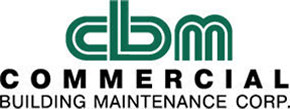Cleanliness isn’t just about appearance. It’s about perception. The way a space looks, smells, and feels creates an impression long before anyone speaks a word. A spotless environment says you care. A dirty one, no matter how small the flaw, whispers the opposite.
What’s dangerous is that this damage doesn’t happen loudly. It builds slowly, quietly, until people start forming opinions you can’t see, but can definitely feel.
First Impressions Never Get a Second Chance
People notice more than you think. A streaked glass door, a sticky floor, or a faint odor might seem minor to those who work there every day. But to clients, visitors, or tenants, it’s often the first thing they register, and it shapes everything that follows.
Clean spaces signal professionalism. They suggest order, attention, and pride. Messy ones hint at neglect, even if the product or service is excellent.
That silent judgment spreads quickly. A visitor who steps into an untidy lobby doesn’t just see dust; they see carelessness. And that reflection doesn’t stop at the floor; it lands on your brand.
The Ripple Effect on Morale and Productivity
Employees feel it, too. A poorly maintained workspace drains energy. It makes people care less, subconsciously lowering standards across the board.
A clean, well-kept environment boosts focus and pride. It encourages ownership and professionalism. The opposite creates the sense that details don’t matter. And when details stop mattering, performance follows.
Cleanliness isn’t just an expense; it’s a silent motivator that sets the tone for how people show up every day.
Small Issues That Become Big Problems
The decline rarely starts with something huge. It’s the little things, the forgotten corners, the dusty vents, the coffee stains that never quite go away. Over time, those small oversights tell a story: one of inconsistency and inattention.
Here’s what often gets overlooked:
- Entryways: The first and most seen part of your space, often neglected after heavy traffic.
- Restrooms: A direct reflection of respect for customers and staff alike.
- Windows and glass surfaces: The difference between bright professionalism and dull neglect.
- Odors: Subtle, but unforgettable when they linger.
Each one chips away at trust, reputation, and comfort until people simply stop noticing the space altogether and start noticing the feeling it leaves behind.
Reputation Is Built in the Details
No marketing campaign or customer promise can outshine a poor physical impression. Cleanliness tells your story before you even introduce yourself.
A polished environment shows care, precision, and respect. A neglected one raises questions you don’t want people asking: If they overlook this, what else are they missing?
The Quiet Cost of Neglect?
Reputation doesn’t crumble overnight; it erodes in silence. A dusty corner here, a streaked counter there, and before long, the space feels different. Clients leave unimpressed. Employees disengage.
And the worst part? You rarely know it’s happening until it’s too late.
Because cleanliness isn’t just maintenance, it’s communication. It speaks for you when you’re not in the room. And what it says can either elevate your brand or quietly undo it, one fingerprint at a time.

